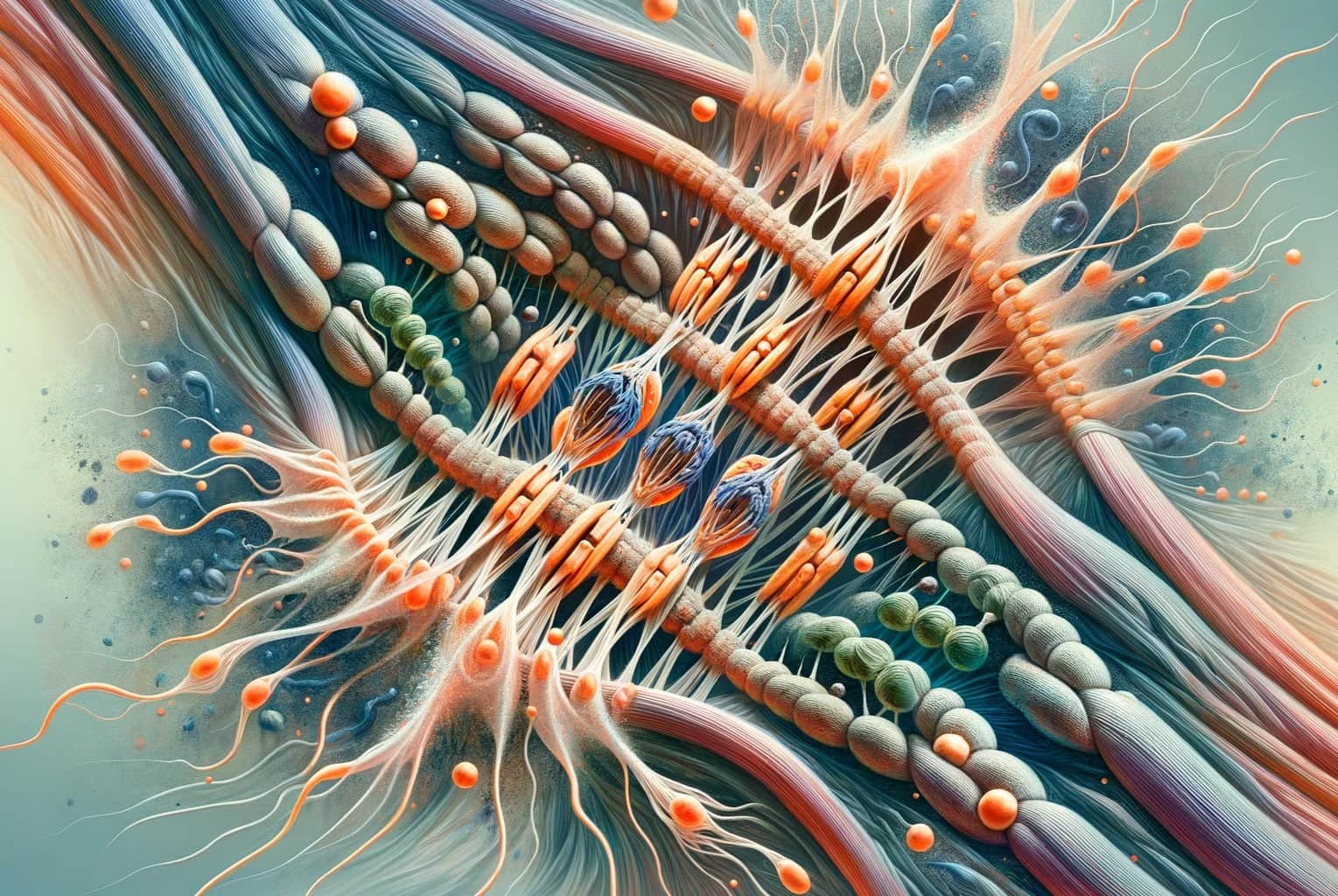
Actin is a protein that plays a crucial role in the structure and movement of cells. Found in nearly all eukaryotic cells, actin is a key player in muscle contraction, cell division, and cell signaling. This protein forms microfilaments, which are part of the cell's cytoskeleton, providing support and shape. Actin's ability to rapidly assemble and disassemble allows cells to move and change shape. Without actin, many essential cellular processes would be impossible. From aiding in wound healing to enabling white blood cells to chase down pathogens, actin is indispensable. Understanding actin's functions can shed light on various biological processes and diseases. Ready to learn more? Let's dive into 30 fascinating facts about this vital protein!
What is Actinium?
Actinium is a fascinating element with unique properties and a rich history. It belongs to the actinide series and is known for its radioactive nature. Here are some intriguing facts about this lesser-known element.
-
Actinium's Symbol: Actinium is represented by the symbol Ac on the periodic table.
-
Atomic Number: It has an atomic number of 89, placing it among the actinides.
-
Discovery: Actinium was discovered in 1899 by German chemist Friedrich Oskar Giesel.
-
Name Origin: The name "Actinium" comes from the Greek word "aktinos," meaning ray or beam, highlighting its radioactive properties.
-
Radioactivity: Actinium is highly radioactive, emitting alpha particles during its decay process.
Physical Properties of Actinium
Actinium's physical characteristics make it stand out among other elements. Its appearance and behavior under different conditions are noteworthy.
-
Appearance: Actinium is a silvery-white metal that glows faintly in the dark due to its radioactivity.
-
Density: It has a density of 10.07 grams per cubic centimeter, making it quite dense.
-
Melting Point: Actinium melts at 1,050 degrees Celsius (1,922 degrees Fahrenheit).
-
Boiling Point: Its boiling point is around 3,200 degrees Celsius (5,792 degrees Fahrenheit).
-
Soft Metal: Actinium is relatively soft and can be cut with a knife.
Chemical Properties of Actinium
Actinium's chemical behavior is influenced by its position in the periodic table and its radioactive nature. Here are some key chemical properties.
-
Oxidation State: Actinium commonly exhibits an oxidation state of +3.
-
Reactivity: It reacts with oxygen and moisture in the air, forming a white oxide coating.
-
Compounds: Actinium forms compounds such as actinium oxide (Ac2O3) and actinium fluoride (AcF3).
-
Solubility: Actinium compounds are generally insoluble in water but can dissolve in acids.
-
Electronegativity: It has an electronegativity of 1.1 on the Pauling scale.
Uses of Actinium
Despite its rarity and radioactivity, actinium has some practical applications, particularly in the field of medicine and research.
-
Cancer Treatment: Actinium-225 is used in targeted alpha therapy (TAT) for treating certain types of cancer.
-
Neutron Sources: Actinium-227 is used as a neutron source in research and industrial applications.
-
Radiotherapy: Actinium isotopes are used in radiotherapy for their potent radiation.
-
Tracer Studies: It is used in tracer studies to understand chemical reactions and biological processes.
-
Scientific Research: Actinium's properties make it valuable in nuclear science and radiochemistry research.
Isotopes of Actinium
Actinium has several isotopes, each with unique properties and uses. Here are some notable ones.
-
Actinium-225: This isotope has a half-life of 10 days and is used in cancer treatment.
-
Actinium-227: With a half-life of 21.77 years, it is used as a neutron source.
-
Actinium-228: This isotope has a half-life of 6.13 hours and is less commonly used.
-
Actinium-229: It has a half-life of 62.7 minutes and is primarily of scientific interest.
-
Actinium-230: This isotope has a very short half-life of 122 seconds.
Safety and Handling of Actinium
Due to its radioactivity, actinium must be handled with care. Here are some safety considerations.
-
Radiation Hazard: Actinium emits alpha particles, which can be harmful if ingested or inhaled.
-
Protective Gear: Handling actinium requires protective clothing and radiation shielding.
-
Storage: Actinium should be stored in sealed containers to prevent contamination.
-
Disposal: Disposal of actinium must follow strict radioactive waste guidelines.
-
Health Risks: Prolonged exposure to actinium can increase the risk of cancer and other health issues.
The Final Word on Actin
Actin is a powerhouse protein. It plays a crucial role in muscle contraction, cell movement, and maintaining cell shape. Without actin, our bodies wouldn't function properly. This protein forms microfilaments, which are part of the cell's cytoskeleton. Actin's dynamic nature allows cells to move and divide, essential for growth and healing. It's also involved in intracellular transport, helping move organelles and vesicles within cells. Actin works closely with myosin in muscle cells to produce movement. This interaction is vital for everything from walking to heartbeats. Understanding actin's functions can lead to breakthroughs in medical research, especially in areas like cancer and genetic disorders. So, next time you move a muscle, remember the tiny but mighty actin working behind the scenes. This protein truly is a cornerstone of life.
Was this page helpful?
Our commitment to delivering trustworthy and engaging content is at the heart of what we do. Each fact on our site is contributed by real users like you, bringing a wealth of diverse insights and information. To ensure the highest standards of accuracy and reliability, our dedicated editors meticulously review each submission. This process guarantees that the facts we share are not only fascinating but also credible. Trust in our commitment to quality and authenticity as you explore and learn with us.


